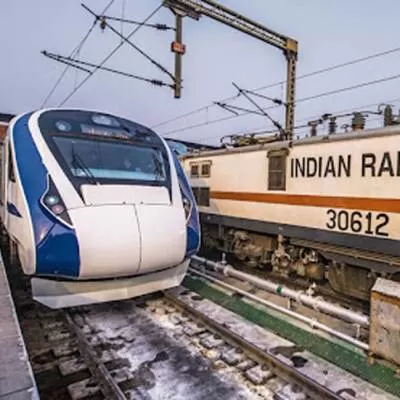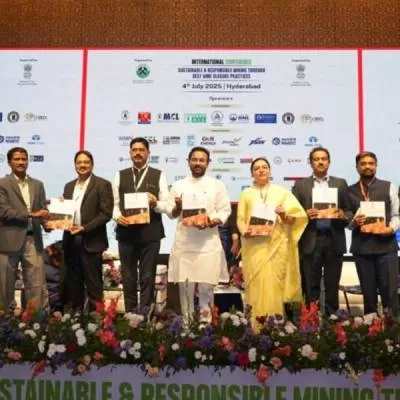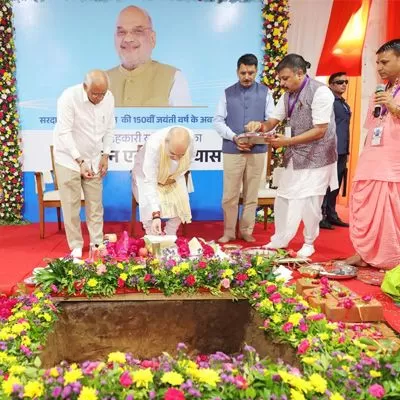Schedule a Call Back
Opinion: Connect Missing Dots in Indian Infrastructure Sector for Faster Recovery
 Once the world?s fastest-growing major economy, India?s growth engines are sputtering back to life again. Inevitably, the earliest signs of this are evident from the many infrastructure segments. From power demand to shipment of goods, there has been a pickup in all segments after the decline witnessed after the lockdown imposed in late March. That things are looking up was evident even from the Reserve Bank of India (RBI) Governor Shaktikanta Das? recent policy speech, where he predicted a turnaround by 4Q2020-21.
Once the world?s fastest-growing major economy, India?s growth engines are sputtering back to life again. Inevitably, the earliest signs of this are evident from the many infrastructure segments. From power demand to shipment of goods, there has been a pickup in all segments after the decline witnessed after the lockdown imposed in late March. That things are looking up was evident even from the Reserve Bank of India (RBI) Governor Shaktikanta Das? recent policy speech, where he predicted a turnaround by 4Q2020-21.
He backed up his positive outlook by announcing measures to boost liquidity, which among other things, eased up risk weight on loans for the housing sector. The aim appears to be that of helping an essential segment of infrastructure as that would have a ripple effect on the entire economy.
The measures are more than welcome, but perhaps it is time to also ask: ?Should we not have a coordinated approach to boosting infrastructure rather than in bits and pieces??
Even as India is aiming to emerge from the shadows of the COVID-19 pandemic to establish itself as a new global hub for the manufacturing sector, there is no shame in taking a leaf out of rival China?s book. The world?s second-ranked economy could only establish itself as a global manufacturing hub by building a solid foundation for infrastructure.
In the months to come, India can undoubtedly pick a few lessons and with improvisations lead the way to making policy changes that bring in a radical change in the ease of doing business as well as supplying its domestic needs and international demands. Resources are abundant in India ? whether it be copper concentrate, coal and iron-ore to or agriculture. Moreover, it has a large marketplace and a young population.
Additionally, there is immense ancient wisdom which often always helps to think current policies through. India has now to connect the dots to harness its true potential ? and aim at a quantum jump that requires sound and modern infrastructure. While the government has made impressive strides in national highways, solar generation and taken an innovative approach to waterways and railways privatisation, few can deny that we are still short of achieving what is required.
In a sector where timelines are long, capital requirements are massive and return uncertain, the question that may arise is: How to make this happen when both the government and private sector are struggling to maximise the use of limited resources?
The answer might be, to begin with, two of the biggest challenges ? a suitable legal framework and innovative models of financing.
One of the biggest challenges that India faces is the enforceability of contracts. Though India has leapfrogged from a rank of 140 to 63 in the World Bank?s Ease of Doing Business Index, in the domain of contracts it still ranks a lowly 163.
Easier Road to Contract Enforcement
In a country with a strong and long record of a judicial system, it should not take long to redress. Currently, enforcing a contract can take 1,045 days while a resolution of a commercial dispute from start to finish can take 1,445 days. This is certainly not acceptable.
In a developed country like the US and Singapore, one can enforce a contract in a week. In cases of a large arbitration matter, it can be completed in a single day. India too has an established system of arbitration. Still, too often proceedings are tardy or even after they are finished, they journey through a long winding path in various courts, effectively putting them back to square one.
India has shown marvellous thought leadership in the micro, small and medium enterprises (MSME) sector with the introduction of 90 days? timeline for pronouncement of an award; mandate to deposit 75 per cent of the amount as awarded for an appeal and imposition of interest at 18 per cent per annum for any delay. Such amendments have helped to incentivise settlements.
There should be a rethinking on the much spoken about delays in our judicial system; it is time to bring some out-of-the-box ideas to the table and implement them. Simultaneously, commercial courts need to be established in sufficient numbers to ease the legal burden and facilitate speedy case disposals.
Mediation and conciliation as alternative dispute resolution mechanisms need to be in place.
Additionally, we require a massive effort to induct new judges knowledgeable in commercial litigation as such cases require subject matter expertise. To that extent, it would be appropriate to have judges with different areas of expertise to improve efficiency.
The pandemic has opened a brave new world of digital platforms. Courts are getting used to e-filings, which may prove to be a speedier new norm. Artificial intelligence may be relied upon heavily for weeding through repetitive and straightforward cases that may require templated judgments to facilitate case disposals again.
Adopting Innovative Approaches to Financing
These granular measures will need to be complemented with a robust macro approach. India should be able to provide a stable policy framework wherein foreign investors feel reassured that rules and regulations won?t change once established. For example, investors in solar power would need to know about the local content requirements, and that won?t change once parameters are announced.
In the wake of the pandemic, the government had rightly offered moratoriums, such as on payments by power distribution companies and promised more financial aid. But as we head into the cycle of recovery, it would be timely to look at how to bring about long-term financing options for infrastructure.
While RBI has announced that it will maintain an accommodative monetary policy, the reality is that banks are loath to provide credit, especially to smaller players. With many sectors such as rooftop solar to electric vehicle charging systems likely to be dominated by small firms, there have to be new ways of providing the seed capital required for projects.
In that regard, Union Transport Minister Nitin Gadkari?s suggestion that a risk rating system should be introduced to provide financing to various private players appears to hold a lot of merits. Public-private partnerships (PPPs) may also be set up for infrastructure financing firms that can raise the capital needed for such projects.
The quantum of infrastructure financing that will be required by 2040 is estimated at $4.5 trillion. In contrast, the pandemic is estimated to have shrunk the availability to about a fifth of the requirement. The government has hinted at creating new development finance institutions in partnership with private companies.
But there need to be guard rails established that the money is well-utilised simultaneously. For example, Indian companies have a poor track record in building tarred roads that tend to disintegrate well short of expected five-year longevity. There should be exact parameters established linked to the quality of assets made with specific legal requirements that would invite punitive financial measures for low quality.
Simultaneously, the red tape needs to be cut as far as possible. The speedy processing of loans through measures such as waiving requirements of bank guarantees by letters of undertaking issued by regulators allowed in renewable energy projects should become the norm.
Easing norms of overseas borrowings and facilitating foreign portfolio investments in financing instruments like InvITs and REITs would be needed. These would need to go hand-in-hand with providing a freer hand to private players such as in railways in things like deciding revenue mix between passenger and freight traffic to ensure long-term profitability and balancing commercial with social objectives.
Many segments of India?s manufacturing sector are unable to compete strongly in the global market due to the high costs of logistics and inputs such as power.
All said and done, ultimately, it's the people who make a difference. Officers need to show some regard for the conscientious before imposing penalties. The magnanimity of a policy or announcement needs to reflect at the level of implementation.
But for that, honest officers also need protection that their magnanimity should not be misconstrued as corruption! By taking purposeful strides towards boosting infrastructure, India will be able to significantly cut these costs as well as attract more significant foreign investments by further improving the ease of doing business.
Dr. Poornima Advani is a noted lawyer, author and social activist. She is a partner at the law firm, The Law Point, and former Chairperson of the National Commission for Women (NCW).


Subscribe Now
Subscribe to our Newsletter & Stay updated
RECENT POSTS
Popular Tags
Folliow us











